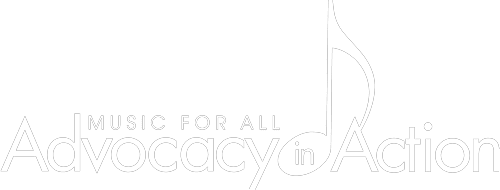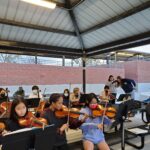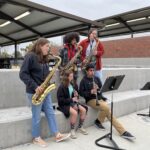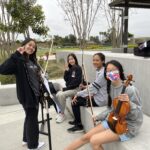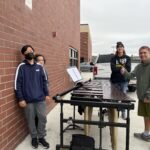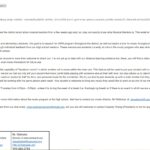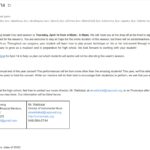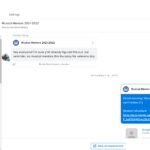“Musical Mentors”
Capistrano Valley High School Instrumental Music
Capistrano Valley High School
San Juan Capistrano, California
Description
Musical Mentors is a student led initiative that encourages students to play instruments. While also being a mentoring program, it also serves as a recruiting program for the Instrumental Music program at Capistrano Valley High School. Musical Mentors holds weekly sessions, every Thursday from 4:00-5:30pm, for any student within the Capistrano Unified District to attend and receive free lessons from CVHS students. We teach instruments from violin to piano at any level. At Musical Mentors, students and mentors learn what true musicianship is through engagement, communication, and a growing passion to play.
Objectives
The main objectives for our initiative are to prepare students for higher levels of instrumental music playing and to foster a love and appreciation of music in the process. In the short term, we aim to help students with any roadblocks they encounter with their playing. For example, if they struggle with certain rhythms or octaves, we have a mentor teach them how to correct the issue or give them advice on how to make progress on it. Students will come to us with exercises or songs they need to learn for their classes and so we, like any tutoring service, help them with this type of “homework.” We work to advance their technical instrument playing and their ability to read and play music. Generally, we want to instill them with practice skills so they can apply what we do at Musical Mentors in their homes or their classes. In the long run, we hope to grow their love and appreciation for music by separating instrument playing from the strictness of a classroom setting and providing them with exposure to new and different perspectives from high school music students. We also try to prepare them for what to expect in higher level music classes, with a particular focus on the methods of CVHS’s instrumental music program. This early peek into the high school work ethic and learning strategies allows kids who are looking to continue with their musical journeys with an idea of what lies in their future.
Target Audience
Our program is mainly geared towards the students from the local middle and elementary schools that typically “feed” into our high school. Seeing as the music program is introduced to students in our district at a young age, we wanted to inspire the question: “Why play an instrument?” and ultimately guide them to find their answer. Knowing that one day these young students will one day grow to be high schoolers finding their way, mentors are there to help encourage them on a musical path, giving them something to look forward to throughout school and life. In the long run, our goal is to inspire a love for music in younger kids, no matter who they may be, and to grow the Capistrano Valley Instrumental Music program with students who already share a passion for the music they play and a zeal to learn even more. By connecting highschool mentors with young students, we aimed to show them the fascinations that music education could conjure throughout the years of practicing this art. Just as big kids stand as role models to little ones, our mentors stand as inspirations to our mentees. Beneficially, many musicians already at CVHS find solace in knowing there is a place where they are welcome to improve their skills through peer mentorship. Revisiting and teaching basic fundamentals help hone the skills of our musicians as they work through their student’s struggles together. Taking in younger students meant watching them grow throughout the years in preparation for their full potential, and we wanted to be of help one step of the way. We hoped that by the time the students reached high school, they would wish to continue their practice in music already feeling confident in their skills, eager to face new challenges waiting to be conquered.
Timeline
Our program is set in action during the school year, from late September to early May. As mentioned before, Musical Mentors is set to hold sessions every Thursday unless in the case of an event such as a holiday break or school wide events where the campus is utilized. We also take in consideration the schedules of our members. The first session typically is set a month after the school year begins to give both mentors and mentees a chance to settle in before diving into extracurricular activities. It also gives our program the chance to reach out to CVHS musicians, parents, and other students to encourage them in joining before sessions officially start. We end our sessions around the time of AP testing to give all students time to focus on their upcoming exams. However, the executive team stays engaged even during the summer responding to any emails regarding questions about the program and students for the upcoming year.
Overview of Planning and Execution
Our program is primarily student-led. The Musical Mentors executive team consists of seven members: President, Vice President, Secretary, Treasurer, Senior Representative, Junior Representative, and Sophomore Representative. The team meets and begins planning in late July/early August, before the school year officially begins. In these meetings, responsibilities are established so that planning events and sessions throughout the year go smoothly. The team is essentially trained on their duties; the President coordinates sessions and meetings as well as their agendas and lesson plans. The VP works alongside the President but is mainly responsible for sending weekly emails about sessions and important upcoming events to the parents and corresponds with teacher/parent emails. Secretary keeps attendance of mentors and students weekly and takes notes during full meetings. Treasurer oversees all financial endeavors, mainly from fundraisers. Our reps help recruit members through helping with publicity. The team meets at the beginning and end of every month to discuss successes and new goals as well as important upcoming events. Our teacher advisor is usually only ever needed when campus events occur such as school wide fundraisers. Most importantly, however, are the mentors, mentees, and parents. Without them, our program wouldn’t be what it is now. Musical Mentors is grateful for the overwhelming support from the parents, from encouraging their students to join our sessions to telling other parents of musicians about our program. More so, while our mentors help teach the mentees the skills they wish to grow, the students come to each session with a smile on their face, ready to see what the lesson awaits for them that week. Laughter and cheers are often heard, a sign that the mentors are successful in their teachings to open a whole new passion for music.
Tools and Resources
Our main resources were provided on our school campus. We receive permission each year to hold sessions on campus ground after school hours where parents are welcomed to stay and watch. The mentees are encouraged to bring their own music, in most cases their school music, to work on during their lesson. However, we also provide workbooks for mentors to use during their solo time: a rhythm workbook and a musicianship basics workbook. These workbooks are also used in ensemble time for clapping and counting exercises as well as sight reading exercises. Money from fundraisers go towards looking into purchases for resources such as these. Students that play larger instruments, like cello, bass, piano, or percussion instruments are free to use the CVHS instruments during their session. Our funds also go into providing instruments to teach as well as repairs. At Musical Mentors, we keep it simple as to create a friendly environment for all to enjoy the time spent learning, listening, and playing.
Marketing and Promotion
Our promotion mainly came from reaching out to teachers and parents within the district about the program through email. At the beginning of the school year, an introduction email would be sent out to teachers and parents of the program from the year before with information about Musical Mentors. In the email, a google form would be attached asking for a response if interested. From there, parents would be added to the weekly email chain for the year along with the teachers. Teachers gladly promote the program to their classes which helps grow our demographic throughout the district. Parents, as well as the mentees, would tell their friends about Musical Mentors, influxing our expected attendance. We’d often see new names in the attendance google form that’s sent out in our weekly emails, new faces at sessions, and parent emails letting us know that their student wants to join! We always make sure to thank the parents and teachers for their support just as much as they thank us for our work with their student(s). By staying active with our members outside of the mentors and mentees, we entrust a promise to create an environment of fun and safe learning. In past years, we’ve also had chamber groups visit schools within the district to play a few songs to the music classes. We also utilized this as a way to promote our music program at CVHS, showing them how much their skills can grow with time and dedication. It also promotes the skills of our mentors and the capabilities they have to teach. Having high school musicians visiting younger ones sparks a vision that they too could continue to thrive as an inspiring musician at CVHS.
Costs
This year, our program did not spend any of our funds. All instruments and music are provided by the school. All fundraiser items such as bake sale goods are donated by our mentors or supportive families.
Challenges/Obstacles
The largest challenge in the Musical Mentors program has often been maintaining attendance from the high school mentors each week. The program is purely volunteer-based, which means that some mentors are unable to show up each week due to circumstances such as work. This can create difficulties in planning out which mentors can take over teaching certain instruments, especially the less common instrument types such as pianists, guitarist, and percussionists. To combat this problem before sessions, the VP sends out messages through the Remind app the morning of sessions asking mentors to inform them if they are unable to make the session that day. Knowing this information helps us plan ahead a backup solution to ensure that the students that informed us of their attendance have a mentor to teach them. In past cases, we had to get creative and pair a violist and cellist to teach bass together!
Our biggest challenge, however, was during online learning. Even through a pandemic, Musical Mentors stayed determined in our goal in inspiring a passion for music. Tougher than ever, we questioned the many ways on how to keep students engaged in the music program through virtual screens. We utilized Zoom’s breakout rooms to pair mentors up with mentees for their personal session and held training sessions for our mentors with advice on how to run sessions. Our usual ensemble time turned into music theory Kahoots to start off the main session before breakout sessions. This had the students excited for the rest of their time with us as we started with a fun learning game! Through it all, our mentors were glad to see students coming back each week to show them how their skills had improved from the week before, despite the circumstances.
Success/Effectiveness Measurement
We have found that our efforts have come full-circle. The program has several members who started as middle school mentees at the program’s inception, and they have now returned, mentoring the kids they once were. Some have even decided to dedicate their time to be a part of the board almost as if to give back for their attending years. With our mentees, we often see them find new friendships at sessions with classmates they never thought of interacting with before. At sessions, our mentees share a goal: Grow their musicianship at the hand of a friendly mentor. It can often be seen how a mentee’s determination to improve alongside their friends grows each week and how their mentor cheers them on, satisfied with their teaching success. Our attendance has grown from 10 students in our first ever held session to around 40 and growing today. Our email chain generally consists of around 60-80 people all of which being either teachers, parents, and even some students. The email chain is constantly growing throughout the year as more and more people reach out in interest about the program and how to go about having their student(s) attend.
Kids and parents alike have also mentioned Musical mentors as a reason for choosing to attend Capistrano Valley High School, saying that Musical Mentors has allowed them to get to know the campus and environment of the school as well as already attending students and possible future classmates. We often receive parent emails thanking us for the work we do and how happy their student is to attend each week as well as their own satisfaction with their student’s budding passion for music. Though, our mentors’ efforts are clear seeing the mentees’ smiles during sessions.
Community Impact
As mentioned before, we are frequently thanked for the positive impacts of our program. This program has impacted our community by not only bringing kids from local schools to Capistrano Valley High School, but also welcoming students from other districts as well. Our program invites kids from all ages and instruments to come together and learn music as a team. Through this program, high school mentors gain important skills by learning to teach younger kids and communicate their own skills to other people. The mentees gain more appreciation for the knowledge of music and how fun it can actually be to play an instrument. The motivation to continue playing and better their musical abilities is heightened in new ways that a classroom or private lesson may not be able to achieve. Overall, we believe all members of the program find use, as well as satisfaction, in our program.
Advice for others?
Publicity and outreach are some of the most important factors in ensuring success. Emphasize that the program is free for students of all musical levels and help promote the notion that you’re here to help, not profit. Communication with the parents should be a top priority! Be clear and respectful!
